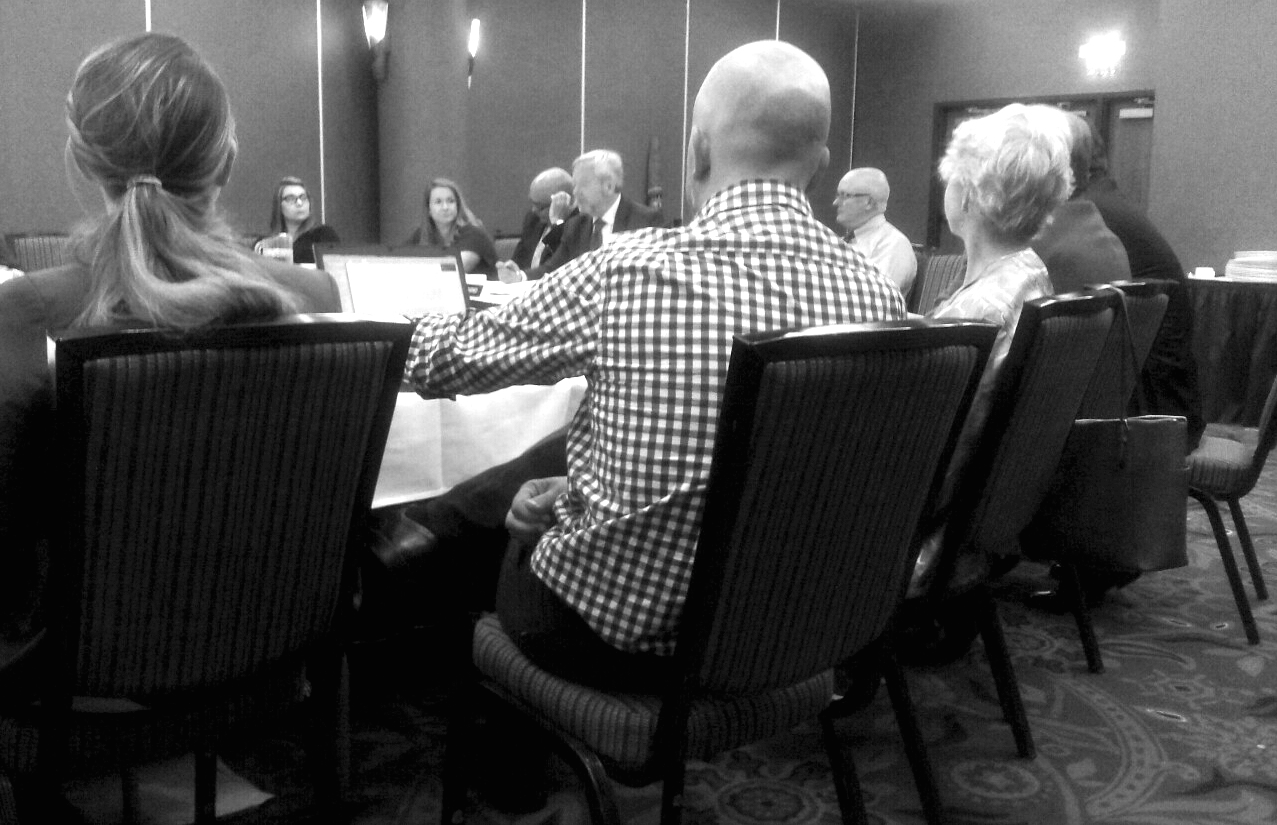By Michael Scoular (The Cascade) – Email
Print Edition: July 1, 2015

At its final meeting of the academic year, the Board of Governors considered the product of over two months of debate and reconsideration surrounding the formation of an Academic Success Centre (ASC) in place of the then-operating Writing Centre: a motion from Senate asking for clarification, preventative measures, and careful evaluation, and a review prepared by the academic planning and priorities committee (APPC).
However, this discussion unfolded entirely in private, as part of a three-hour in-camera session before the board’s regular public meeting.
Board chair Barry Delaney explains in an email that this decision was made to protect the members of the Board of Governors.
“Due to the controversial nature of the [Writing Centre] transition, we chose to have the discussion in-camera so that the views of the individual board members would remain confidential, knowing that the collective decision of the board would be made public,” he says.
The results of this meeting were not made available by press time, and, if normal process is followed, will not be disclosed until the agenda notes for the next board meeting are compiled in September.
University secretary Al Wiseman says information may be shared before then.
“Whenever there is time sensitivity involved or an important reason to make the information public sooner (e.g. to help carry forward University business in a timely manner), the Secretary consults with the Chair and President to determine how to proceed,” he says in an email. That consultation is scheduled to happen later this week.
For many, while the importance of writing support at UFV provoked comment from students, faculty, and administration alike over the past months, equally significant was what this situation represented for open discourse and collegial decision-making at UFV. A small student protest in February on the Abbotsford campus asked why the student service change was made completely at the administrative level, while the APPC considered the same question — if the Writing Centre was an “educational service” or a “resource centre,” any change was required to be preceded by an evaluation passed through Senate, a body made up of faculty, administrators, students, and staff.
The reason for the board’s taking the matter private was presaged in the first APPC meeting specifically focused on the change when VP Academic Eric Davis referred to an “obligation of confidentiality.” Because these questions were happening after the change already began, the contracts and employment details of individuals were, he said, involved in the conversation.
While subsequent committee and Senate meetings opened up the subject to public comment, all consultation and input cedes to the board’s decision and direction. In other recent matters, including the discontinuance of the fashion design diploma and the name change of the teacher education program (to teacher education department), Senate’s recommendation, created during a public session, has been discussed and finalized in private by the board.
Meanwhile, preparations to make the Academic Success Centre ready for the fall semester continue. The APPC’s review raised several concerns about the ASC’s rationale and operating model, while also mentioning the absence of documents such as a proposal for the creation of the ASC and closure of the Writing Centre that would have made the review more complete. But director of teaching and learning Maureen Wideman, who is heading the ASC start-up, says that the need for two separate proposals comes down to a difference in definition.
“That’s their opinion,” she says. “What they received is all we had. There was no proposal to close the Writing Centre because the Writing Centre did not close … It’s open, it’s just transitioning to an ASC.”
Right now, seven tutors have been hired and begun to work for the ASC. VP students Jody Gordon’s budget outline detailed 40 tutors as part of the service. But Wideman is confident in the progress made so far. “I don’t think we’ll have any trouble meeting the demand,” she says. “We already have people dropping off applications for the fall and we haven’t even posted [the job openings] yet.”
Gordon adds that the budget the APPC scrutinized, which was called inadequate for “the plan’s goals and scope of activities and programs supported,” is already outdated. An additional full-time staff position has been added, and an undisclosed amount of funding has been promised to the ASC, adding to the service’s annual budget previously cited at $300,000.
“We look at this as, yes, if there’s a need to support [the Academic Success Centre] and make it more flexible, we can find that,” she says.
Gordon sees the ASC as a way to curb students leaving UFV. “If we’re going to lose a student, we’ll lose them after first year,” Gordon says. “So we have a responsibility to look at that data and be responsible with how we’re going to respond.”
Tutor training has already extended to the psychology resource room on the Abbotsford campus, and Gordon mentions that at other institutions, ASC tutoring sometimes takes place in residence, not just in the centre. An online booking system allows students to choose from among the two full-time staff (whose tutoring availability “may not be as readily available” as student tutors) and the roster of undergraduate tutors, and Gordon and Wideman add that, from what they’re hearing, the changes the ASC will bring have support. In the absence of any information about the board regarding a thorough evaluation of the service, student surveys are being encouraged. “So far, everything’s been very good,” Wideman says.
And Gordon says this includes instructors. “For every faculty that’s said that, ‘We’re not sure if we support this,’ we’ve got many more who say they do.”

